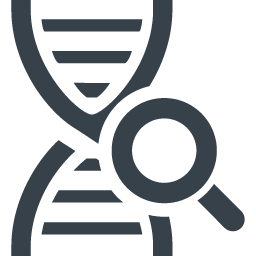 PIGT gene related symptoms and diseases
PIGT gene related symptoms and diseases
All the information presented here about the PIGT gene and its related diseases, symptoms, and test panels has been aggregated from the following public sources: ORPHANET,HGNC,NCBIGENE,OMIM, Mendelian Rare Disease Search Engine.
Top 5 symptoms and clinical features associated to PIGT gene
| Symptoms // Phenotype | % Cases |
|---|---|
| Seizures | Uncommon - Between 30% and 50% cases |
| Atrophy/Degeneration affecting the brainstem | Uncommon - Between 30% and 50% cases |
| Downturned corners of mouth | Uncommon - Between 30% and 50% cases |
| Renal cyst | Uncommon - Between 30% and 50% cases |
| Generalized myoclonic seizures | Uncommon - Between 30% and 50% cases |
Other less frequent symptoms and clinical features
Patients with PIGT gene alterations may also develop some of the following symptoms and phenotypes:Not very common - Between 30% and 50% cases
- Narrow forehead
- Status epilepticus
- Open mouth
- Cerebral visual impairment
- Nephrocalcinosis
- Deep philtrum
- Hypercalciuria
- Large for gestational age
And 49 more phenotypes, you can get all of them using our tools for rare diseases.
Rare diseases associated to PIGT gene
Here you will find a list of rare diseases related to the PIGT. You can also use our tool to get a more accurate diagnosis based on your current symptoms.
INTELLECTUAL DISABILITY-SEIZURES-HYPOTONIA-OPHTHALMOLOGIC-SKELETAL ANOMALIES SYNDROME
Alternate names
INTELLECTUAL DISABILITY-SEIZURES-HYPOTONIA-OPHTHALMOLOGIC-SKELETAL ANOMALIES SYNDROME Is also known as pigt-cdg, glycosylphosphatidylinositol biosynthesis defect 7, gpibd7, multiple congenital anomalies-hypotonia-seizures syndrome type 3, mcahs type 3, congenital disorder of glycosylation due to pigt deficiency
Description
Intellectual disability-seizures-hypotonia-ophthalmologic-skeletal anomalies syndrome is a rare congenital disorder of glycosylation characterized by neonatal hypotonia, global development delay, developmental regress and severe to profound intellectual disability, infantile onset seizures that are initially associated with febrile episodes with subsequent transition to unprovoked seizures, impaired vision with esotropia and nystagmus, progressive cerebral and cerebellar atrophy, skeletal abnormalities (including brachycephaly, scoliosis, slender long bones, delayed bone age, pectus excavatum and osteopenia), inverted nipples and dysmorphic features including high and narrow forehead, frontal bossing, short nose, depressed nasal bridge, anteverted nares, high palate and wide open mouth consistent with facial hypotonia. Other features may include cardiac abnormalities (such as patent ductus arteriosus, atrial septal defects), urogenital abnormalities (such as nephrocalcinosis, urolithiasis), and low plasma concentration of alkaline phosphatase.
Most common symptoms of INTELLECTUAL DISABILITY-SEIZURES-HYPOTONIA-OPHTHALMOLOGIC-SKELETAL ANOMALIES SYNDROME
- Seizures
- Global developmental delay
- Generalized hypotonia
- Scoliosis
- Nystagmus
More info about INTELLECTUAL DISABILITY-SEIZURES-HYPOTONIA-OPHTHALMOLOGIC-SKELETAL ANOMALIES SYNDROME
PAROXYSMAL NOCTURNAL HEMOGLOBINURIA 2; PNH2
Most common symptoms of PAROXYSMAL NOCTURNAL HEMOGLOBINURIA 2; PNH2
- Pain
- Anemia
- Fatigue
- Diarrhea
- Headache
More info about PAROXYSMAL NOCTURNAL HEMOGLOBINURIA 2; PNH2
SOURCES: OMIM
Search interest in PIGT
Potential gene panels for PIGT gene
CHOP Epilepsy Panel Panel
 United States.
United States.
By Division of Genomic Diagnostics The Children's Hospital of Philadelphia CHOP Epilepsy Panel that also includes the following genes: SCN1A SCN1B SCN2A SCN8A ST3GAL3 SLC2A1 SLC35A2 SLC6A1 SLC6A8 SPTAN1
More info about this panel United States.
United States.
Mental retardation - different panels Panel
 Germany.
Germany.
By Institute of Human Genetics Uniklinik RWTH Aachen Mental retardation - different panels that also includes the following genes: RGS7 RIT1 RMRP BCS1L RPL10 RPS6KA3 RRAS SALL1 SC5D ATXN10
More info about this panel Germany.
Germany.
Multiple congenital anomalies-hypotonia-seizures syndrome type 3 Panel
 Germany.
Germany.
By Centogene AG - the Rare Disease Company
This panel specifically test the PIGT gene.
More info about this panel Germany.
Germany.
Epilepsy Panel
 Estonia.
Estonia.
By Asper Biogene Asper Biogene LLC Epilepsy that also includes the following genes: SCN1A SCN1B SCN2A SCN8A ST3GAL3 ST3GAL5 SLC35A2 SLC35A3 SLC6A1 SLC6A8
More info about this panel Estonia.
Estonia.
PIGT Panel
 United States.
United States.
By Fulgent Genetics Fulgent Genetics
This panel specifically test the PIGT gene.
More info about this panel United States.
United States.
Comprehensive Epilepsy Panel Panel
 Finland.
Finland.
By Blueprint Genetics Comprehensive Epilepsy Panel that also includes the following genes: SCN1A SCN1B SCN2A SCN8A SCN9A SCO1 AIMP1 ST3GAL3 ST3GAL5 SLC25A1
More info about this panel Finland.
Finland.
If you liked this article maybe you will also find interesting the following in-depth articles about other rare diseases, like SBF2 HADH ZNF711